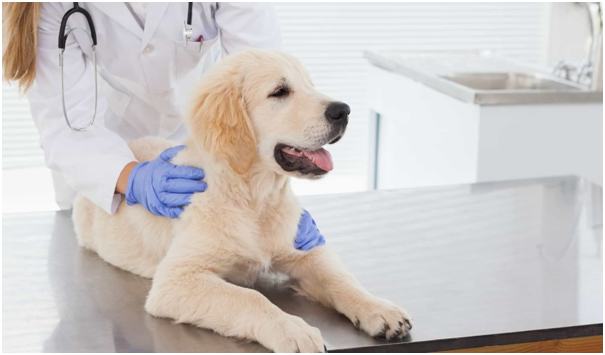Having a lovely puppy to embrace and cuddle is one of life’s greatest pleasures. Having a pup is a once-in-a-lifetime opportunity for the entire family to join in on this pleasure. We understand how exciting and memorable this moment in time is for you. Therefore, we wish to provide you with accurate knowledge and information on medical care so that you may give your new puppy the best possible start.
Make sure you ask for a complete physical examination and collect information during your first visit to the veterinarian to ensure that you clearly understand your puppy’s health. It is also your chance to learn everything you need to know about puppy care. You must be a knowledgeable, responsible, and affectionate puppy guardian. Plan to spend at least an hour on the first visit and bring all the family members who will take an active role in caring for the puppy.
Buy pet health insurance beforehand that reimburses you for this first visit and subsequent visits, and that safeguards your finances against future sickness and illness uncertainties. As with human health insurance, pet health insurance covers pet medical costs. A dog insurance policy bought by pet owners will offset the cost of veterinary care for their animals, which means they can make a quick decision on treatments regardless of the price. Plan benefits may be based on a percentage of covered medical procedures minus an out-of-pocket deductible.
Although most of these precautions and recommendations are the same for all puppies, the veterinarian will consider factors such as breed, age, lifestyle, and any current health or behaviour issues, before making recommendations that are appropriate for your puppy.
Puppy food is an integral part of responsible puppy care. After all, your puppy’s body is growing in a way that directly affects its quality of life. Therefore, it is essential to choose a puppy food specially formulated for puppies and growing dogs.
Small and medium-sized dogs can be weaned from puppy food and adult dog food when they are 9 to 12 months old. Large dogs should continue to eat puppy food until they are 1-year-old. Make sure your puppy has plenty of fresh water early in the day to help break down the puppy food and keep it hydrated.
On potty training, regular eating and walking plans can help get this done quickly. The puppy will learn, understand and enjoy consistent procedures and a reliable daily schedule.
Under normal circumstances, the owner only needs to clean the puppy’s urine and defecation once or twice before realising the importance of toilet training. After bringing your new canine companion home, potty training should begin immediately. It will help to reward young puppies with gentle compliments as soon as they go to the bathroom.
Do not use negative reinforcement if there is an accident. Your puppy does not go to the bathroom at home on purpose, but because it does not know better. During potty training, it is vital to maintain the bond of trust and safety between the puppy and the owner, and only sympathy and calm can promote this. Therefore, your best ally is patience, planning, and lots of positive reinforcement.
Also, be sure to follow a structured puppy feeding schedule. Discuss this with the veterinarian at your next appointment and seek personalized advice to ensure you feed your puppy correctly. Vet costs may be high, but there are many circumstances where top rated pet insurance has helped the pet parent cut down the costs. Insurance for pets online is available extensively – do your research well and choose the best one for your circumstances.
